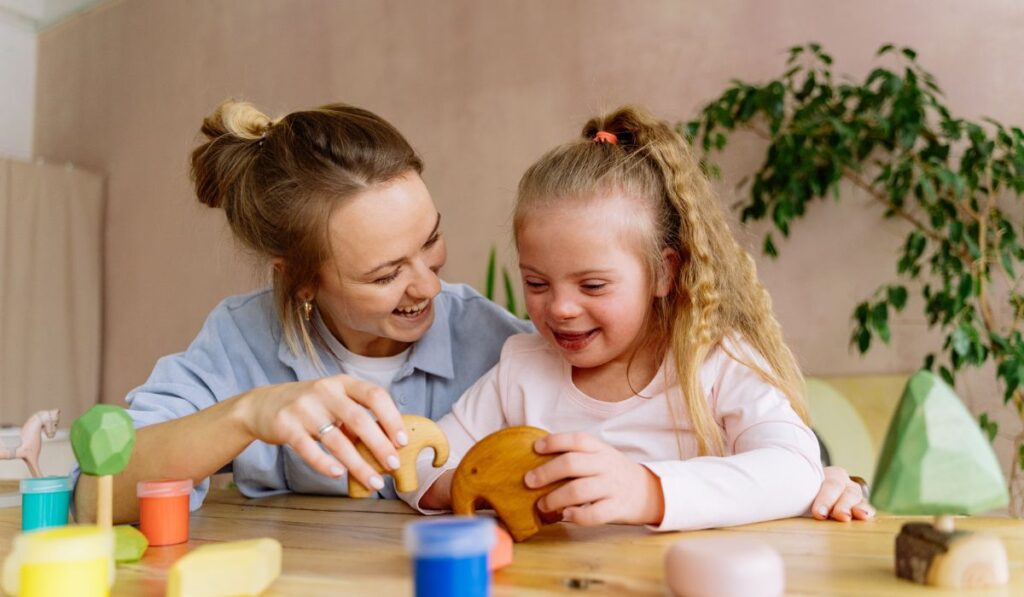Starting school is a major milestone in every child’s life. It marks the beginning of new experiences, relationships, and learning opportunities. For many children, this transition can come with excitement and a few jitters—but for children with developmental challenges, the shift can be overwhelming without the right support. That’s where School-Readiness ABA Therapy comes in.
Applied Behavior Analysis (ABA) therapy is a science-backed approach that helps children develop the foundational skills needed for success in both social and academic environments. Let’s explore how school-readiness ABA programs prepare children by teaching them critical social and academic skills, setting the stage for long-term success.
Understanding School-Readiness ABA Therapy
School-readiness ABA therapy is designed specifically to prepare young children for the structured, social environment of school. These programs are tailored to each child’s needs and focus on building the essential behaviors required for classroom success. Through a combination of play-based learning, structured activities, and individualized goals, children develop the skills they need to thrive from day one.
School readiness doesn’t just mean knowing the alphabet or being able to count. It includes a range of skills such as following instructions, sitting for extended periods, interacting with peers, and managing emotions—all of which can be nurtured through ABA.
Core Social Skills Taught Through ABA
1. Initiating and Maintaining Peer Interactions
One of the biggest challenges for children entering school is interacting with peers. School-readiness ABA helps children learn how to:
- Make eye contact
- Greet others appropriately
- Take turns during play
- Ask to join in group activities
- Maintain a conversation
By role-playing scenarios, using visual aids, and modeling behaviors, therapists teach children how to build friendships and navigate social situations with confidence.
2. Understanding Social Rules and Norms
Many children with developmental delays may not intuitively grasp unwritten social rules, such as raising a hand before speaking or waiting in line. ABA therapy breaks these social rules down into manageable steps and reinforces appropriate behavior through positive reinforcement and repetition.
3. Managing Emotions and Behavior
Learning to self-regulate is a key component of social development. School-readiness ABA focuses on teaching children to identify their emotions, cope with frustration, and express themselves in a calm, respectful manner. Techniques such as deep breathing, using communication tools, or asking for breaks are introduced and practiced regularly.
Academic Foundations Built in School-Readiness ABA
1. Following Multi-Step Directions
Teachers often give multi-step instructions, such as “Put away your backpack, grab your pencil, and sit at your desk.” For some children, this can be overwhelming. ABA therapy helps children break down complex instructions, understand sequencing, and complete tasks independently.
2. Increasing Attention Span
The ability to attend to a task for longer periods is crucial for school success. ABA programs use reinforcement systems to gradually increase a child’s ability to focus during structured learning activities, circle time, or independent work.
3. Pre-Academic Skills
While ABA is not a replacement for traditional academics, it lays the foundation for learning. Children in school-readiness ABA programs often work on skills such as:
- Recognizing letters, shapes, and numbers
- Matching and sorting
- Basic counting and color identification
- Simple problem-solving
These activities are presented in a fun, engaging way that encourages participation and builds confidence.
Real-World Practice: Simulating the Classroom Environment
One of the strengths of school-readiness ABA is its use of natural environment teaching (NET). Therapists simulate classroom environments to provide children with real-world practice. This might include mock circle time, following a class schedule, or navigating transitions between activities.
Through guided practice, children become more comfortable with school-like routines. They learn to handle changes in activity, manage group settings, and understand classroom expectations. This reduces anxiety and fosters a smoother transition to school.
Individualized Goals and Progress Monitoring
Every child is unique, and school-readiness ABA therapy recognizes that. Each program begins with a comprehensive assessment to identify a child’s strengths and areas of need. Goals are personalized and regularly updated based on progress.
Therapists use data-driven strategies to track a child’s development. If a certain approach isn’t working, it can be adjusted to better support the child. This flexible, responsive model ensures steady progress and keeps families involved in every step of the process.
The Role of Parents and Caregivers
Parental involvement is a vital part of school-readiness ABA. Therapists often provide parent training sessions that equip caregivers with tools to reinforce learning at home. This consistent approach helps children generalize the skills they learn in therapy to other settings, such as home, daycare, or community programs.
Parents also gain insight into their child’s development, learning how to support social and academic growth through everyday routines. This collaborative partnership between families and ABA professionals strengthens the child’s support system.
Preparing for a Lifetime of Learning
While school-readiness ABA therapy focuses on the early stages of education, its benefits extend far beyond the first day of school. By teaching children how to learn, interact, and adapt, ABA lays the foundation for lifelong growth.
Children who develop school-readiness skills through ABA are more likely to:
- Participate in group learning
- Form meaningful relationships
- Communicate effectively with teachers and peers
- Handle new challenges with resilience
These skills are not just for kindergarten—they’re the building blocks for academic and social success throughout life.
Looking for autism ABA therapy in Atlanta, GA? We provide personalized, effective in-home and center-based ABA services to help your child thrive. Contact us today to get started.
Conclusion
Starting school is a big step, and with the right support, it can be a positive and empowering experience. School-readiness ABA therapy gives children the tools they need to step into the classroom with confidence, independence, and curiosity. By focusing on both social and academic development, these programs help children build a strong foundation that will serve them well throughout their educational journey.
If you’re considering school-readiness support for your child, ABA therapy offers a compassionate, personalized, and proven path to success.



